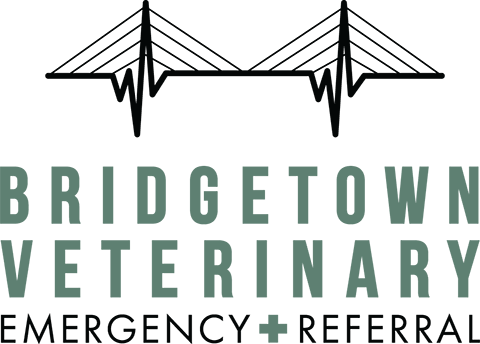Services
Ophthalmology
What is a veterinary internist?
A veterinary internist, is a veterinary specialist that has undergone specialized training in treatment of conditions affecting the gastrointestinal tract, liver and kidneys, respiratory system, immune system, among many others. They are uniquely trained to manage chronic disease processes, complete thorough diagnostic evaluations, and perform specialized procedures.
What to expect at your internal medicine appointment
We look forward to meeting you and your pet for your internal medicine consultation! Prior to the consultation, our internist will review all provided medical records to prepare for the visit. Please provide information for any veterinarian you have seen recently and/or send any records you may have in advance to facilitate this preparation.
We request that you fast your pet prior to the consultation. This means that food should be removed after 10pm the night prior to the consultation. Fasting is important for many diagnostic tests, including abdominal ultrasound, certain blood tests, and anything that requires sedation or anesthesia.
When you arrive for your consultation, you will check in with our front desk team. One of our internal medicine technicians will then greet you in the lobby and escort you to an exam room. The technician will ask a series of questions to get a sense of your pet’s clinical signs, medication and diet history, and your specific goals for the visit. The technician will then relay this information to our internist, bring your pet to the back for a thorough physical examination, and the internist will then return to the room to discuss everything with you and come up with a plan.
Many diagnostics can occur the day of the visit, including many forms of imaging and bloodwork. Some tests are sent out to specialized laboratories and can take days to weeks to return. In some cases, a procedure may occur same-day as well, but some procedures do require advanced preparation, special equipment, or more time than a same-day visit will allow.
To facilitate diagnostics and procedures, your pet may stay at the hospital for several hours. If you leave your pet in our care, we will keep you updated and call you when all diagnostics/procedures are complete and arrange for a pickup time at your convenience. You will go home with comprehensive discharge instructions and a follow-up plan. We will approach your pet’s care as a team and come up with this plan together.
If you are worried that your pet may be suffering from a medical emergency, please call us!
503-489-9535
Procedures
Many veterinarians refer clients to Internal Medicine for specific procedures. We offer the following procedures:
- Abdominal, thoracic, and cervical ultrasound
- Fine needle aspirates
- Feeding tube placement
- CT scan
- Endoscopy
- Rhinoscopy
- Upper and lower GI endoscopy
- Bronchoscopy
- Cystoscopy (female dogs and cats)
- Endotracheal wash
- Bone marrow aspirate/biopsy
- Joint taps (arthrocentesis)
Common conditions managed by Internal Medicine
- Endocrine disorders that involve the thyroid, pituitary, parathyroid, or adrenal glands
- Liver, kidney, or urinary conditions
- Respiratory conditions, such as chronic cough or nasal discharge
- Gastrointestinal diseases, such as those that cause chronic vomiting, diarrhea, regurgitation, difficulty swallowing, or weight loss
- Immune-mediated diseases
- Hematologic disorders
- Infectious diseases
